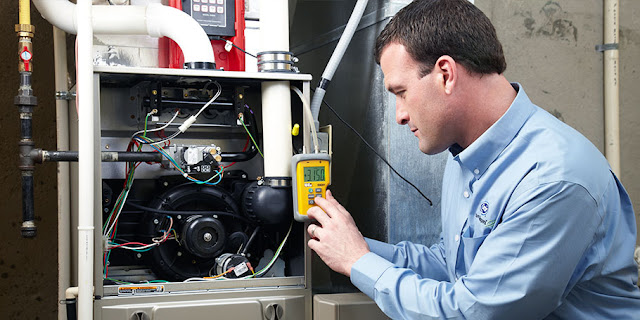HVAC Systems & Maintenance in a Nutshell
Have you ever wondered how your home stays comfortable all year round? How do you keep cool in the summer and warm in the winter? The answer is HVAC, which stands for heating, ventilation, and air conditioning. HVAC systems are kind of like your personal miniaturized climate control machines that help you regulate the temperature, humidity, and air quality of your homes. Still, as incredible as they may be, HVAC systems, like most machines, also eventually break down and require repairs. However, although not absolute, basic preservation works, like boiler maintenance service in PA, can effectively prolong the system’s life.
In this article, you will find not only a precise and concise explanation of HVAC systems and their working but also the general maintenance procedures as recommended by the manufacturers.
What is HVAC?
HVAC is a system that consists of three main components: a heating unit, a cooling unit, and a ventilation unit. The heating unit can be a furnace, a boiler, or a heat pump that produces heat by burning fuel or using electricity. The cooling unit can be an air conditioner or a heat pump that removes heat from the air by using a refrigerant. The ventilation unit can be a fan, a duct, or a vent that circulates the air and removes pollutants, moisture, and odors.
How does HVAC work?
HVAC works by using a thermostat to sense the temperature and humidity of the indoor air and adjust the output of the heating or cooling unit accordingly. For example, if the thermostat detects that the room is too cold, it will signal the heating unit to turn on and produce more heat. If the thermostat detects that the room is too hot, it will signal the cooling unit to turn on and remove more heat. The ventilation unit will also work to maintain the air quality by exchanging stale air with fresh air from outside.
While not the entirety of the HVAC’s working mechanism, the thermostat is of immense importance as even minor faults can render the entire system moot. For example, consider a system in Pennsylvania’s dynamic environment. Having not received adequate boiler maintenance service in PA, the system’s heating mechanism will no longer be able to properly regulate the temperature. This in turn will cause not only discomfort to the residents but also immense loss of energy due to reduced efficiency.
How to maintain HVAC?
HVAC is complex and requires regular maintenance to ensure efficiency and longevity. Besides specific system procedures, like boiler maintenance service in PA, here are some basic steps for the whole system’s maintenance:
Change or clean the air filters every month or as recommended by the manufacturer. Dirty filters can reduce the airflow and cause the system to work harder and consume more energy.
Check and clean the coils of the cooling unit every year or as recommended by the manufacturer. Dirty coils can reduce heat transfer and cause the system to work harder and consume more energy.
Check and clean the ducts and vents every year or as recommended by the manufacturer. Dirty ducts and vents can reduce airflow and cause dust, allergens, and mold to accumulate in the system.
Schedule a professional inspection and tune-up every year or as recommended by the manufacturer. A professional technician can check for any leaks, cracks, corrosion, or malfunction in the system and fix them before they become serious problems.
HVAC is a system that can make your home comfortable and healthy all year round. By understanding how it works and how to maintain it properly, you can enjoy its benefits and save money on energy bills. If you have any questions or concerns about your HVAC system, don’t hesitate to contact a qualified HVAC contractor near you.




Comments
Post a Comment